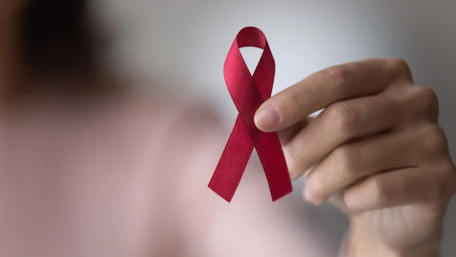税理士相談なら安心・信頼の専門家にお任せ
Understanding HIV: Key Symptoms, Risks, and Strategies for Long-Term Health
Human Immunodeficiency Virus (HIV) remains one of the most significant health challenges globally, affecting millions of individuals every year. With early diagnosis and access to proper treatment, people with HIV can live long and healthy lives. However, HIV remains a complex disease, and understanding its early signs, potential risks, and effective management strategies is essential to maintaining a high quality of life.
Human Immunodeficiency Virus (HIV) remains one of the most significant health challenges globally, affecting millions of individuals every year. With early diagnosis and access to proper treatment, people with HIV can live long and healthy lives. However, HIV remains a complex disease, and understanding its early signs, potential risks, and effective management strategies is essential to maintaining a high quality of life.

This article offers a comprehensive guide to HIV, covering early symptoms, risks of untreated infection, and the importance of timely treatment.
Early Symptoms of HIV
HIV is often referred to as a "silent" virus because many people experience no symptoms for years. However, when the virus first enters the body, it can cause flu-like symptoms that often go unnoticed. These early signs are critical to identify, as they allow for early testing and treatment to prevent the virus from advancing to AIDS (Acquired Immunodeficiency Syndrome).
Acute Retroviral Syndrome (ARS): ARS is the body's initial immune response to HIV and typically occurs 2-4 weeks after exposure. The symptoms can last for a few weeks and are often mistaken for other viral infections like the flu or mono.
Common ARS Symptoms:
- Fever and chis
- Swoen ymph nodes
- Sore throat and mouth ucers
- Fatigue and body aches
- Rash, often on the chest, face, or arms
- Headache and nausea
While these symptoms may disappear within a few weeks, HIV continues to replicate in the body, damaging the immune system. Even if symptoms subside, the virus remains active and can progress if left untreated.
Risks of Untreated HIV
Untreated HIV poses a significant risk to a person's health. Without antiretroviral therapy (ART), HIV can progress to AIDS, where the immune system is severely compromised, leaving the body vulnerable to infections and certain cancers.
Consequences of Untreated HIV:
- Weakened immune system:The virus destroys CD4+ T-ces, crucia for immune function, making the body increasingy susceptibe to infections.
- Opportunistic infections:Conditions ike tubercuosis, pneumonia, and funga infections are more ikey to deveop due to the weakened immune response.
- Progression to AIDS:Over time, untreated HIV eads to AIDS, a condition that drasticay reduces the abiity to fight infections and disease.
- Increased risk of death:Once AIDS deveops, the individua faces a much higher risk of death due to infections and compications.
Timely Diagnosis and Antiretroviral Treatment (ART)
Early diagnosis of HIV is critical to managing the virus and maintaining a healthy life. Antiretroviral therapy (ART) is the standard treatment for HIV, and it works by reducing the amount of virus in the blood (viral load). ART not only prevents HIV from progressing to AIDS but also reduces the risk of transmission to others.
Why Early Treatment Matters:
- Prevents disease progression:ART heps keep the immune system strong and prevents the deveopment of AIDS.
- Reduces vira oad:By owering the amount of HIV in the boodstream, ART can make the virus undetectabe, reducing the risk of transmission.
- Improves quaity of ife:With ART, peope with HIV can ive a ong, heathy ife with minima heath compications.
- Reduces transmission risk:Individuas who maintain an undetectabe vira oad have a significanty ower risk of transmitting HIV to others, even through sexua contact.
Adherence to ART:For ART to be most effective, it is essential to take the prescribed medications consistently and without interruption. Missing doses can lead to the development of drug-resistant strains of the virus, making treatment more difficult.
HIV Testing and Risk Factors
Testing is the only reliable way to know if you have HIV, especially since early symptoms can be mild or mistaken for other conditions. If you engage in high-risk behaviors, such as having unprotected sex or sharing needles, it’s crucial to get tested regularly.
High-Risk Groups:
- Individuas who have unprotected sex with mutipe partners or partners of unknown HIV status.
- Peope who inject drugs and share needes or other injection equipment.
- Men who have sex with men.
- Individuas with a history of sexuay transmitted infections (STIs).
Testing is recommended for sexually active individuals, especially those who are at higher risk of exposure. Early testing not only helps diagnose HIV but also allows for the initiation of ART to control the virus before it causes significant damage to the immune system.
Lifestyle Considerations for Managing HIV
Along with medication, lifestyle adjustments play a vital role in managing HIV. Maintaining a healthy lifestyle can improve the body's ability to cope with the virus, strengthen the immune system, and enhance overall well-being.
Tips for Living Well with HIV:
- Nutrition:A we-baanced diet rich in fruits, vegetabes, whoe grains, and ean proteins supports the immune system and provides energy to combat the effects of the virus.
- Exercise:Reguar physica activity heps reduce stress, improve mood, and increase energy eves. It aso supports the immune system and heps manage weight and other heath conditions.
- Menta Heath Support:HIV can have emotiona and psychoogica impacts, so it’s important to seek support through counseing, therapy, or support groups. Addressing menta heath chaenges is crucia to overa weness.
- Avoid Acoho and Drugs:Substance abuse can interfere with the effectiveness of ART and weaken the immune system, so it’s important to avoid or imit acoho and drug use.
- Reguar Check-ups:Ongoing heathcare visits aow your doctor to monitor your vira oad, immune system function, and overa heath, making it easier to adjust treatment as needed.
Conclusion: The Path to Managing HIV
While HIV is a lifelong condition, it is no longer the death sentence it once was. With proper treatment and lifestyle adjustments, individuals with HIV can live long, fulfilling lives. Early diagnosis, regular testing, and adherence to ART are the cornerstones of HIV management. By taking control of your health, seeking timely medical care, and adopting a healthy lifestyle, you can effectively manage HIV and reduce its impact on your life.
If you believe you are at risk for HIV or have experienced potential exposure, talk to your healthcare provider and get tested. Early intervention and care can help ensure a better quality of life and reduce the risk of complications.











